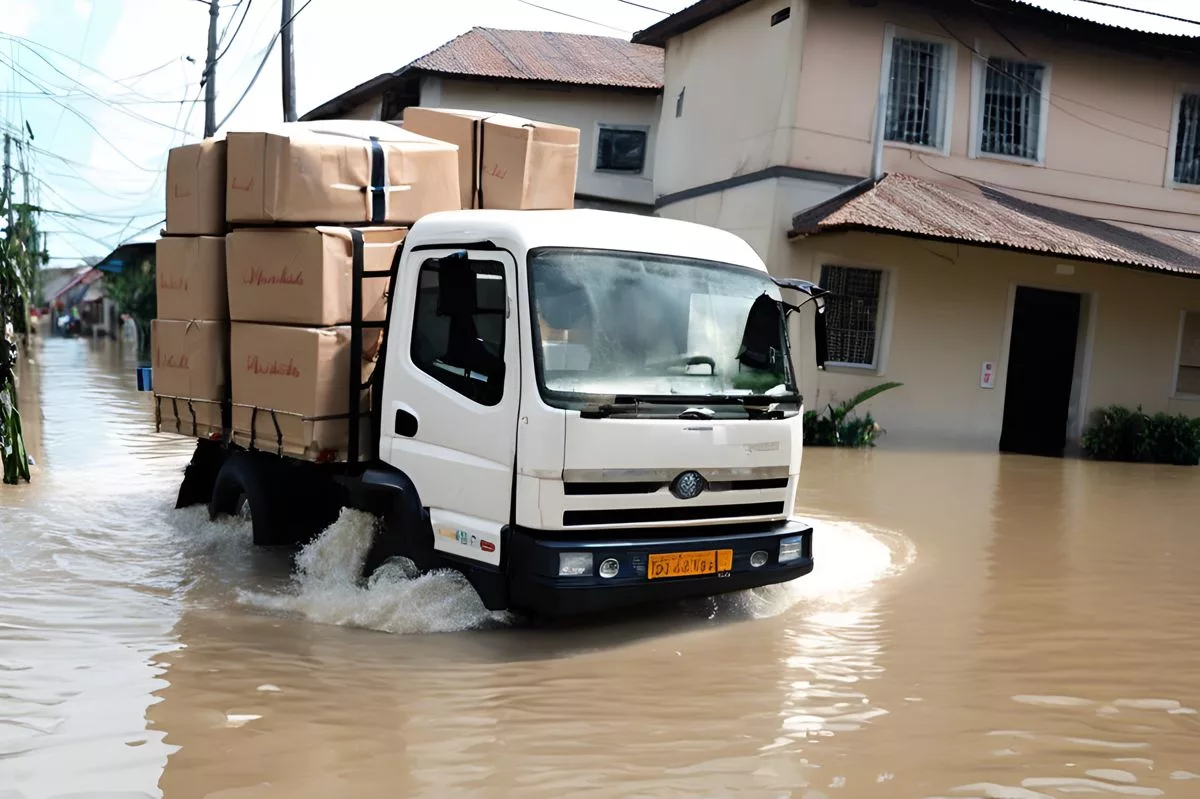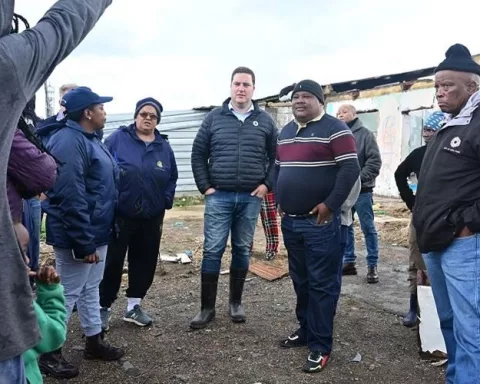Despite a severe storm wreaking havoc on Cape Town, the city’s municipal teams are working tirelessly to alleviate flooding issues and clear obstructions in the stormwater pipe and drainage infrastructure, displaying an impressive foresight in disaster management. The city is advising inhabitants to take precautions and has set up hotlines for emergencies and donations. Relief efforts are underway, including the distribution of flood kits and coordinating relocations, while city officials are urging for the decentralization of emergency housing grants. Amidst the tumult, the city’s electrical teams are also repairing storm-related faults.
Unyielding Efforts Against Nature’s Wrath
Despite the challenging circumstances, Cape Town’s municipal teams remain committed and motivated in addressing the damage caused by the severe storm. Their primary task has been to alleviate flooding issues and clear obstructions in the stormwater pipe and drainage infrastructure, demonstrating their unwavering dedication to the people of Cape Town.
In the midst of a severe storm, Cape Town’s municipal teams are exerting relentless efforts to address the damage caused by the devastating weather. Geordin Hill-Lewis, the city’s Mayor, is at the forefront of these efforts, working alongside the city’s staff as they combat the weather’s effects in areas such as Khayelitsha and Dunoon. As of Tuesday morning, the storm had relentlessly deposited more than 200mm of precipitation, with weather forecasts predicting an ongoing daily downpour of 40 to 60mm until Thursday.
Unyielding Efforts Against Nature’s Wrath
Despite the challenging circumstances, the city’s workforce remains committed and motivated, taking great pride in their work. Their primary task has been to alleviate flooding issues and to clear obstructions in the stormwater pipe and drainage infrastructure, demonstrating their unwavering dedication to the people of Cape Town. In preparation for the winter season, they have proactively cleared over 220km of sewer infrastructure and cleaned stormwater and canal infrastructure in the past few months, displaying an impressive foresight in disaster management.
Bracing For What’s to Come
However, the weather’s fury is far from over. Additional rainfall is expected, leading the Weather Services to upgrade their warning to Level 8 for the approaching Thursday. The Liesbeek, Lotus, and Eerste rivers are at risk of breaching their banks. In response, the City is advising inhabitants against trying to cross canals or fast-moving water. To deal with emergencies, a hotline has been established, number 021 480 7700, to report and handle urgent situations.
A Call for Community Support
Mayor Hill-Lewis, mindful of the struggles of the less privileged, has appealed to the citizens of Cape Town to lend a helping hand through donations. The City is teaming up with its disaster officials and partnering with non-profit organizations to distribute essentials such as non-perishable food, personal care products, nappies, baby formula, blankets, and construction materials. Numerous drop-off points have been set up, and a phone line for donations has been established, working collaboratively with aid organizations like Gift of the Givers to assist those most impacted by the storm.
Relief Efforts and Rehousing
A significant aspect of their relief efforts is the distribution of 4,500 flood kits to residents of informal settlements who have been most affected by the weather. The administration intends to increase this number as they conduct assessments in low-lying areas, gathering data required to aid those in urgent need of assistance from the South African Social Security Agency (SASSA) and the National Human Settlements Department.
City officials are going the extra mile in their duties, coordinating relief efforts with NGOs and aid agencies. They are also handling relocations, ensuring that the process is as streamlined as possible for those affected. In the hardest hit areas, such as Khayelitsha, Lwadle in Strand, Nomzamo, Gugulethu, Masiphumelele, Macassar, Sir Lowry’s Pass, Mfuleni, Tafelisig, and Vygieskraal, the City is working tirelessly to deliver aid as promptly as possible.
Urging for Decentralization of Emergency Housing Grants
Councillor Carl Pophaim, Mayoral Committee Member for Human Settlements, advocates for the decentralization of emergency housing grants to functional municipalities, given Cape Town’s ability to respond swiftly when in direct control of these grants. The City has called upon the national government to act promptly by sharing all verified data of those affected by the storm.
Electrical Adjustments in the Face of the Storm
Amid the tumult, the city’s electrical teams are also grappling with a high number of electricity faults. They are working diligently to repair storm-related faults, while the City extends its apologies for any inconvenience caused by damaged electrical infrastructure. To streamline responses to service requests, a new WhatsApp number has been introduced to log electricity service requests and storm damage. City officials are urging residents to use only one reporting channel to avoid confusion and duplication.
In conclusion, the City’s response to the storm is a testament to its commitment, resilience, and unwavering dedication to its citizens. It serves as a reminder that in times of adversity, it is unity, empathy, and the indomitable human spirit that prevail, providing a beacon of light even amidst the darkest storm.
What is the primary task of Cape Town’s municipal teams during the severe storm?
Their primary task has been to alleviate flooding issues and clear obstructions in the stormwater pipe and drainage infrastructure, demonstrating their unwavering dedication to the people of Cape Town.
What is the hotline number for emergencies and donations?
The City has set up hotlines for emergencies and donations. For emergencies, the hotline number is 021 480 7700.
What relief efforts are underway to assist those impacted by the storm?
Relief efforts are underway, including the distribution of flood kits and coordinating relocations. The City is teaming up with its disaster officials and partnering with non-profit organizations to distribute essentials such as non-perishable food, personal care products, nappies, baby formula, blankets, and construction materials.
What is the City advising inhabitants to do during the storm?
The City is advising inhabitants against trying to cross canals or fast-moving water.
What is the WhatsApp number introduced by the City in response to service requests?
To streamline responses to service requests, a new WhatsApp number has been introduced. City officials are urging residents to use only one reporting channel to avoid confusion and duplication.
What is the call to action by Councillor Carl Pophaim, Mayoral Committee Member for Human Settlements?
Councillor Carl Pophaim, Mayoral Committee Member for Human Settlements, advocates for the decentralization of emergency housing grants to functional municipalities, given Cape Town’s ability to respond swiftly when in direct control of these grants.












